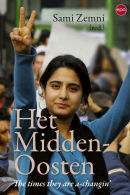Did you find this item worthwhile? Then please consider to support us.
(15-04-2013) Assassinations Grow as Iraqi Elections Near
(07-04-2013) News > World > Middle East Iraq executing more people than it has for almost a decade, says ...
(04-04-2013) GICJ Strongly Condemns Recent Executions in Iraq
(05-01-2013) To an Unknown Iraqi
(01-05-2013) Hawija investigation results revealed
(14-05-2013) USAID: Missionaries of US Imperialism
(14-05-2013) Iraq's invisible refugee crisis
(16-05-2013) Baghdad market attacks, shootings in north kill 17
(15-05-2013) How Baghdad Fuels Iraq's Sectarian Fire
(14-05-2013) Iraq's invisible refugee crisis
(12-05-2013) IRAQ 10 years on: the humanitarian impact
(17-05-2013) Sectarianism in Iraq stoked by Syrian war
(16-05-2013) Baghdad market attacks, shootings in north kill 17
(14-05-2013) Al-Maliki is directing Iraq to war once again
(16-05-2013) Baghdad market attacks, shootings in north kill 17
(14-05-2013) Al-Maliki is directing Iraq to war once again
(06-04-2013) Summary of Events of the Iraqi Popular Revolution
(14-02-2013) Statement Concerning the declarations of Wathiq Al-Battat, the secretary general of the ...
(28-01-2013) Statement of the Constituent Assembly The Central Committee of Coordination to Support the Uprising ...
(14-05-2013) Al-Maliki is directing Iraq to war once again
(14-05-2013) Iraq's invisible refugee crisis
The BRussells Tribunal is independent and wants to remain independent.
The BRussells Tribunal is an activist think tank and peace organisation with a special focus on Iraq. Read more...



 The times they are a-changin' is het eerste grondige Nederlandstalig overzicht dat voorbij oppervlakkigheden en algemeenheden wandelt, en ook nog eens de hele regio bestrijkt, van Egypte en Tunesië tot Marokko, Libië, Syrië, Libanon, Palestina, Jemen, Jordanië, Irak, Bahrein en Israël. Daar bestaat een woord voor: een standaardwerk.
The times they are a-changin' is het eerste grondige Nederlandstalig overzicht dat voorbij oppervlakkigheden en algemeenheden wandelt, en ook nog eens de hele regio bestrijkt, van Egypte en Tunesië tot Marokko, Libië, Syrië, Libanon, Palestina, Jemen, Jordanië, Irak, Bahrein en Israël. Daar bestaat een woord voor: een standaardwerk.